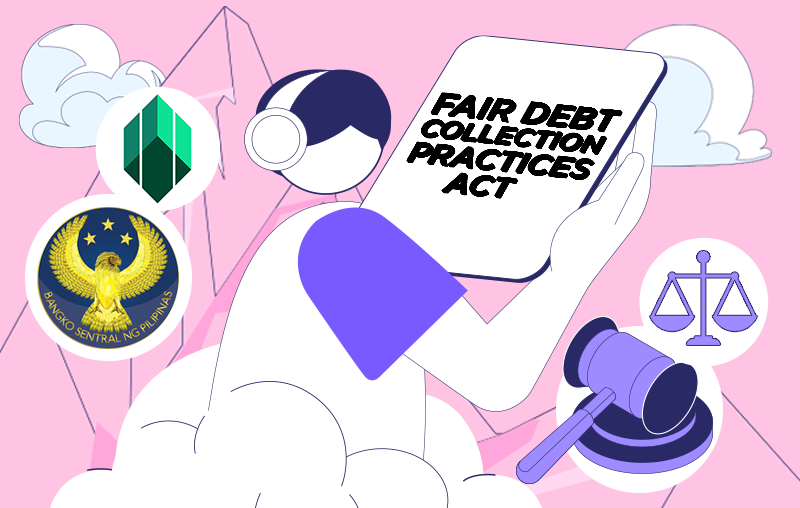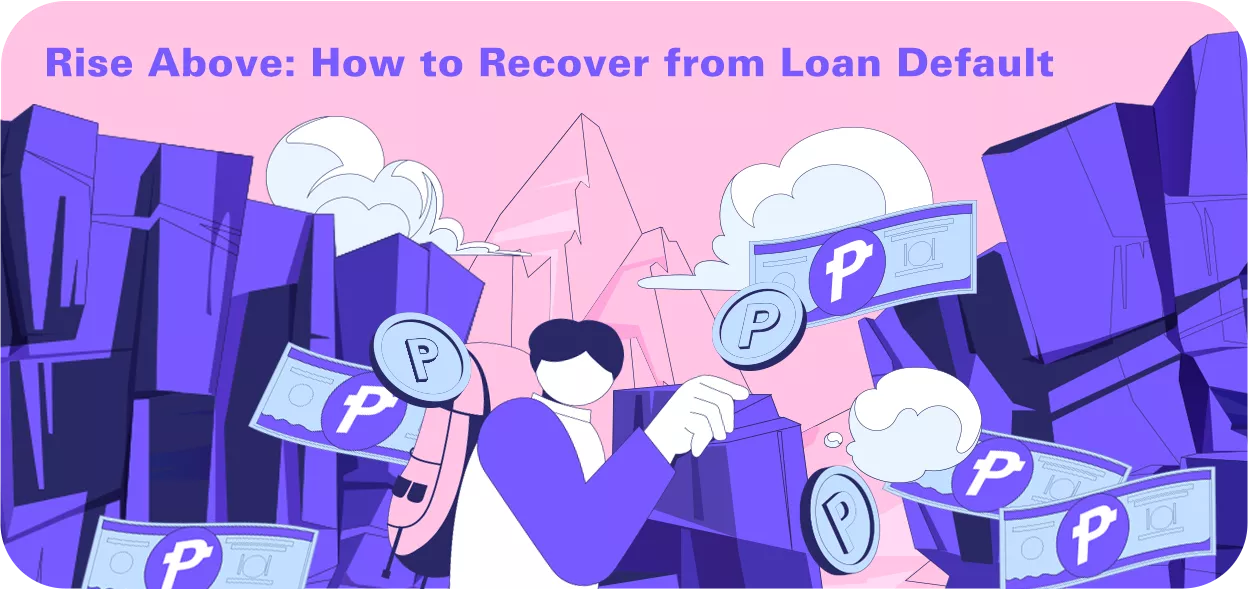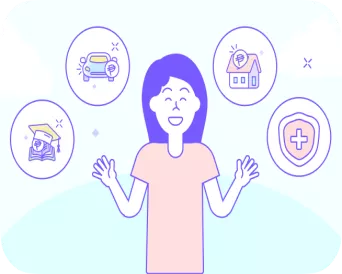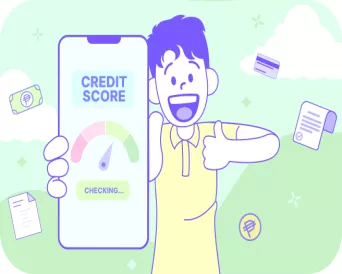As a borrower or someone still considering taking out a loan, the last thing you want to experience is a loan default. Loan defaults are daunting financial setbacks, whether you’re getting online loans or traditional ones.
If you do find yourself in this situation, don’t panic. It’s not the end of the world, luv. As long as you take the necessary actions, there’s still a chance for loan default recovery.
Keep on reading and discover how to recover from loan default and get back on track!
Table of Contents

What is Loan Default?
A loan default occurs when a borrower fails to meet the terms and conditions of a loan agreement by missing one or more scheduled payments.
This doesn’t happen exclusively with personal or online loans. It can also happen with credit cards and mortgages.
When you default on a loan, it can have significant consequences for your financial well-being, credit score, and future borrowing opportunities, not to mention the emotional stress.
TOCCommon Causes of Loan Default
There’s more than one way for loan defaults to arise. Sometimes they happen due to poor financial decisions, and other times they occur because of reasons beyond your control. Let’s explore the common causes below.
- Economic downturns - Recessions, widespread job losses, reduced income, and decreased business activity can make it challenging to keep up with living expenses, let alone loan obligations.
- Personal financial crises or hardships – These include unexpected medical emergencies, family crises, and other unfortunate life events that can cause financial strain. Not only can they make loan repayments impossible, but they can also deplete savings and disrupt income.
- Sudden unemployment – Without a steady income, it’s going to be a real challenge making consistent loan repayments while paying for other expenses and debts. It’s best to always be prepared with an emergency fund or an alternative income source to avoid loan default.
- Poor financial management or over-leveraging – Over-leveraging happens when you borrow more than you can afford to repay. To avoid this, always remember to borrow only what you can pay back.
Consequences of Loan Default
The consequences of loan default go beyond just damaging your ability to get a loan again in the future. Here are some consequences you should expect:
- Immediate financial penalties – Depending on who your lender is, you may have to pay immediate financial penalties, including late fees and increased interest rates. These penalties can significantly increase the total amount you owe, making it even harder to catch up on payments.
- Negative impact on credit score - A poor credit score can limit your financial options and increase borrowing costs. If you want to continue these financial services, make sure you pay your loan on time and on the dot! Additionally, you might want to keep a close eye on your credit score. Check out the Credit Information Corporation (CIC) website to learn how!
- Legal consequences and potential lawsuits – Not all lenders do this, but some may pursue legal action to recover the debt when borrowers undergo a loan default. Legal proceedings are not only time-consuming, but costly as well, so you certainly want to steer clear of this.
- Seizure of collateral in secured loans – For secured loans, loan default can lead to the lender seizing the collateral (e.g., your car or property). This loss of assets can have a profound impact on your financial stability.
- Long-term financial implications and stigma – We don’t mean to scare you too much, hun, but you should know that it can take years to rebuild your credit and financial reputation. The stigma of default may also affect your ability to get loans in the long run.
The Loan Recovery Process
Loan default normally triggers a slew of actions from the lender. If you fail to pay your loan, here’s what you can expect.
- Initial notices and communications from lenders – Before you default, lenders will typically give you a chance by sending you notices. They may include warnings about the potential consequences of continued non-payment.
- Role of collection agencies – Lenders may seek out the assistance of collection agencies. These are agencies that specialize in recovering overdue payments and may employ various tactics to encourage repayment.
- Recovery methods for various loan types (e.g., mortgages, auto loans, personal loans) - The recover process can be different depending on the type of loan. Loan defaults in mortgages, for example, could result in foreclosure proceedings. Auto loans, on the other hand, could lead to repossession of vehicles.
Understanding Your Rights as a Borrower

Whether you’re at fault for the loan default or not, you should always remember that you have specific rights as a borrower. Let's explore them now!
- Fair Debt Collection Practices and related laws – Here in the Philippines, we have what’s called the Fair Debt Collection Practices Act which essentially protects you from unjust debt collection practices. Understanding the Fair Debt Collection Practices Act and other relevant laws can help you recognize when your rights are being violated and take appropriate action.
- Rights related to communication frequency, harassment prevention, and debt validation – Remember, no matter how much you owe the lender, they are prohibited from harassing you, contacting you at unreasonable hours, or using deceptive tactics. You can also request debt validation to ensure the accuracy of the debt being claimed.
- How to respond to inaccuracies or unethical practices - Are there inaccuracies in the debt being claimed? You can dispute the debt, report harassment, and file complaints with relevant authorities, such as the Bangko Sentral ng Pilipinas (BSP) or the Securities and Exchange Commission (SEC).
Strategies for Avoiding Loan Default
As the old saying goes, the best cure is prevention. Before you even think of taking out a loan, be ready with these helpful strategies to avoid loan default.
- Effective financial planning and budgeting - You can employ all sorts of loan repayment strategies like sticking to a strict budget. By living within your means, you can reduce the risk of overextending yourself and facing loan default.
- Seeking professional financial advice - Beyond just reading this handy little blog, you should also consider seeking guidance from financial professionals or credit counselors. They can provide valuable insights into managing debt, creating a repayment strategy, and improving your overall financial health.
- Recognizing early warning signs and proactive communication with lenders - Keep a watchful eye on your financial situation. If you think loan repayments are about to get difficult for you, communicate with your lenders early. They may offer temporary relief options, such as loan modification or deferment, to help you navigate through financial challenges and avoid a loan default.
Dealing with Loan Default: Steps and Recommendations
Let’s say you’ve found yourself in the middle of defaulting on a loan. What next? Follow these steps, and hopefully you’ll be back on your feet faster than you think.
- Engaging with the lender to discuss potential solutions – We've mentioned this already, but it’s so important that it’s worth reminding again and again. Reach out as soon as you anticipate difficulties in making payments since many lenders are willing to work with borrowers facing financial challenges and may offer temporary relief options or revised payment plans!
- Loan restructuring or refinancing options - Explore the possibility of debt restructuring or refinancing your loan to make the terms more manageable. You may extend the loan terms, reduce interest rates, or consolidate multiple loans into one.
- Seeking legal advice - A qualified attorney can help you understand your rights, negotiate with the lender, and provide guidance on navigating potential legal proceedings.
- Debt consolidation or management programs - These programs can help you combine multiple debts into one manageable payment or work with a credit counseling agency to create a structured repayment plan.
We’re Looking For Responsible Borrowers!
Think you’re a responsible borrower? Then get a Tonik Digital Bank Loan today!
Just don’t forget, luv. Loan responsibly and repay on time! We don’t think that would be a problem, though, because loan repayment with us is super easy.
The best part about Tonik Digital Bank Loans? Application is a breeze through the Tonik App! Download today and apply now.







